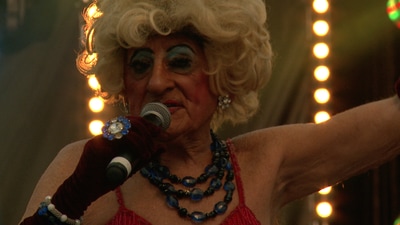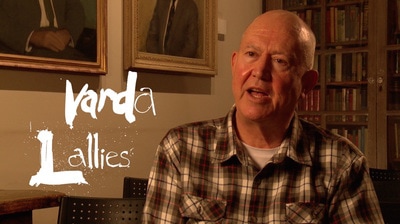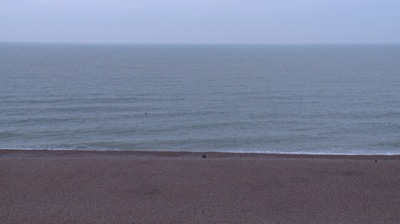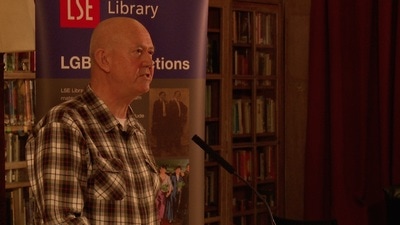There was a time when the persecuted gay men of Britain might greet each other with "bona to varda your dolly old eek"; a common phrase in their secret slang language of Polari. The 'Polari' documentary explores the sad story behind the camp cryptolect, and profiles the men who spoke it, as well as those who rejected it.
stills
DIRECTOR'S STATEMENT
When I first started circling around the idea of directing a documentary on ‘Polari’ I had no clue that it was a dying language headed for extinction. After all, I would hear it repeated on the BBC week in week out, through the camp parlances of Round the Horne’s ‘Julian and Sandy’. But beyond enjoying the comic syntax of Kenneth Williams advising Hugh Paddick to ‘lau his luppers on the strillers bona’, I knew very little about this cryptolect’s colourful history.
Pre-production on ‘Polari’ was a revelation. It opened my eyes to a section of history that goes largely unreported, and certainly bypasses any textbooks on our LGBTQ-shy curriculum. But what I discovered was a rich etymology that extends back to Elizabethan times and incorporates the archaic languages of thieves, travellers, entertainers, sailors, Jews, transvestites, drag queens and cockneys, to name but a few.
Researching for this documentary also highlighted some shocking examples of what I came to understand is at the core of Polari’s story; the sad truth behind the camp facade. This was a language used by gay men out of necessity. A way of communicating and signalling to other like-oriented members of an oppressed sub-culture. The stacks of 1950s gay-bashing newspaper headlines my Producer and I waded through were testament to the abhorrence these individuals faced. Incorporating these examples into the documentary felt necessary to not only paint a picture of the society that drove its homosexuals to speak in code, but also to expose the humiliation that was doled out to them in the name of ‘morality’, and to remind ourselves why we should never go back.
Pre-production on ‘Polari’ was a revelation. It opened my eyes to a section of history that goes largely unreported, and certainly bypasses any textbooks on our LGBTQ-shy curriculum. But what I discovered was a rich etymology that extends back to Elizabethan times and incorporates the archaic languages of thieves, travellers, entertainers, sailors, Jews, transvestites, drag queens and cockneys, to name but a few.
Researching for this documentary also highlighted some shocking examples of what I came to understand is at the core of Polari’s story; the sad truth behind the camp facade. This was a language used by gay men out of necessity. A way of communicating and signalling to other like-oriented members of an oppressed sub-culture. The stacks of 1950s gay-bashing newspaper headlines my Producer and I waded through were testament to the abhorrence these individuals faced. Incorporating these examples into the documentary felt necessary to not only paint a picture of the society that drove its homosexuals to speak in code, but also to expose the humiliation that was doled out to them in the name of ‘morality’, and to remind ourselves why we should never go back.



